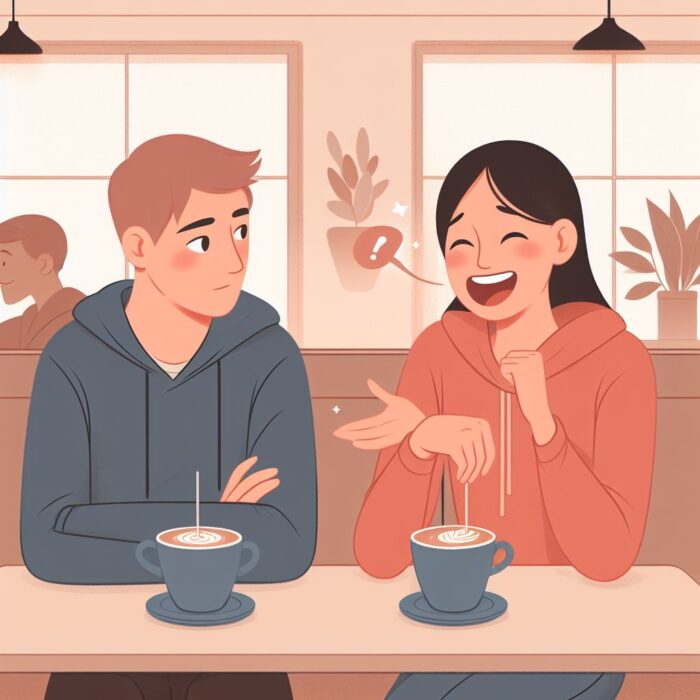Are Introverts Attracted To Extroverts? Finding Harmony In Opposites Attract
In the world of dating, opposites often attract. But can this age-old adage hold true for introverts and extroverts? While their social needs and energy levels differ significantly, introvert-extrovert relationships can blossom into thriving partnerships. This article explores the complexities and strengths of these pairings, offering valuable insights and communication strategies for a harmonious journey.
Can Introverts And Extroverts Be Couples? Beyond Stereotypes
Introversion and extroversion are not absolute categories but rather points on a spectrum. Introverts gain energy from spending time alone, focusing on their inner world. They often prefer quiet environments and smaller social circles. Extroverts, on the other hand, draw energy from social interaction. They thrive in stimulating environments and enjoy larger social networks.
In the context of dating, these differences can manifest in various ways. Introverts might crave solo recharge time after a date, while extroverts might yearn for more frequent social activities with their partner. Understanding these fundamental needs is crucial for building a successful relationship.
Do Extroverts Fall In Love With Introverts? Why Introverts And Extroverts Might Click
Despite their contrasting preferences, introverts and extroverts can be drawn to each other for several reasons. Introverts might find extroverts’ social confidence and outgoing nature refreshing. Extroverts might appreciate introverts’ ability to listen deeply and value quiet moments. This “opposites attract” dynamic can create a balanced partnership where each person fulfills a need for the other.
Statistics support this notion. A study published in the Journal of Personality and Social Psychology found that couples with complementary personality traits, such as introversion and extroversion, reported higher levels of relationship satisfaction.
Communication: The Bridge To Understanding
Communication is the cornerstone of any healthy relationship, and it’s even more crucial for introvert-extrovert couples. Here are some key strategies to foster understanding:
- Open Communication: Discuss your social needs openly and honestly. Explain to your partner what helps you recharge after social outings and how you prefer to spend quality time together.
- Respectful Compromise: Find a balance between social activities and quiet time. Introverts might need breaks after extroverts’ social gatherings, while extroverts might appreciate occasional quiet evenings with their introverted partner.
- Active Listening: Extroverts can practice active listening, giving introverts their space to express themselves thoughtfully. Introverts can try to engage more actively in conversations, even if it means stepping outside their comfort zone sometimes.
Finding The Balance: Social Needs And Alone Time

One of the biggest challenges in introvert-extrovert relationships is finding a healthy balance between shared social activities and alone time. Introverts might feel drained after an extrovert’s social event, while extroverts might desire more social interaction than their introverted partner can comfortably handle.
The Power Of Self-Awareness And Respect
Self-awareness and respect are crucial for navigating these differences. Introverts need to understand their own limits and communicate their need for alone time without feeling guilty. Extroverts need to respect their partner’s need for solitude and avoid pressuring them into constant social engagement.
Embracing Differences: Finding Common Ground
While social preferences might differ, introvert-extrovert couples can find common ground in other areas. Shared hobbies, intellectual pursuits, and a deep connection can form a strong foundation for their relationship. Extroverts can introduce their introverted partners to new activities in controlled settings, while introverts can share their love for quiet pursuits with their extroverted partners.
Creating A Mutually Enriching Environment
Introvert-extrovert relationships can create a vibrant and enriching environment. Extroverts can help introverts step out of their comfort zone and embrace new experiences. Introverts can bring a sense of calm and introspective thinking to the relationship, offering a welcome respite from the extrovert’s social energy.
Respecting Boundaries And Preferences

Boundaries are essential in any relationship, and even more so for introvert-extrovert couples. Respecting each other’s need for space and alone time shows respect and understanding. For instance, an extroverted partner might agree to limit the number of social outings per week to accommodate their introverted partner’s needs.
Love Struck but Socially Stuck? How Introverts & Extroverts Can Thrive Together
The Power Of Compromise And Flexibility
Compromise and flexibility are key ingredients for a successful introvert-extrovert relationship. Both partners need to be willing to adjust their social preferences to make the relationship work. This might involve attending social events with breaks for introverts or finding solo activities extroverts can enjoy that don’t require their partner.
Celebrating The Unique Dynamics Of Introvert-Extrovert Partnerships
Introvert-extrovert relationships offer a unique and dynamic partnership. Here’s why you should celebrate this special pairing:
- Growth and Personal Development: By stepping outside their comfort zones, introverts can learn to enjoy social interaction more, while extroverts can develop a deeper appreciation for quiet reflection.
- Balance and Perspective: Each partner brings a valuable perspective to the relationship. Extroverts can keep things lively and exciting, while introverts can provide a sense of calm and grounding.
- Stronger Communication Skills: Navigating social differences necessitates strong communication skills, which ultimately benefit the relationship in all aspects.
Statistics:
- Prevalence of Introverts and Extroverts: According to the Myers-Briggs Foundation, introverts make up approximately 50% of the population, while extroverts account for the other 50%.
-
- Website: www.myersbriggs.org
- Relationship Satisfaction: A study by the University of Groningen found that introverts and extroverts in relationships report similar levels of satisfaction and happiness when both partners are understanding and accommodating of each other’s needs.
-
- Website: www.rug.nl
- Communication Preferences: Research published in the Journal of Personality and Social Psychology indicates that introverts prefer deep, one-on-one conversations 78% of the time, compared to extroverts who prefer group interactions 64% of the time.
-
- Website: www.apa.org/pubs/journals/psp
- Social Interaction: According to a survey by the Pew Research Center, 65% of extroverts enjoy social gatherings and parties, whereas 58% of introverts prefer quiet, solitary activities.
-
- Website: www.pewresearch.org
Remember: This article is for informational purposes only and should not be a substitute for professional relationship advice.
Conclusion: Love Knows No Introversion Or Extroversion
While introversion and extroversion can present unique challenges in a relationship, these challenges can also be a source of strength and growth. By understanding each other’s needs, communicating openly, and embracing compromise, introvert-extrovert couples can build a thriving and fulfilling partnership. Remember, love knows no introversion or extroversion; it thrives on respect, understanding, and a commitment to building a life together.
References:
Additional Resources:
- The Myers & Briggs Foundation: https://www.myersbriggs.org/
- Introvert, Dear: https://introvertdear.com/write-for-us/
- The Gottman Institute: https://www.gottman.com/


